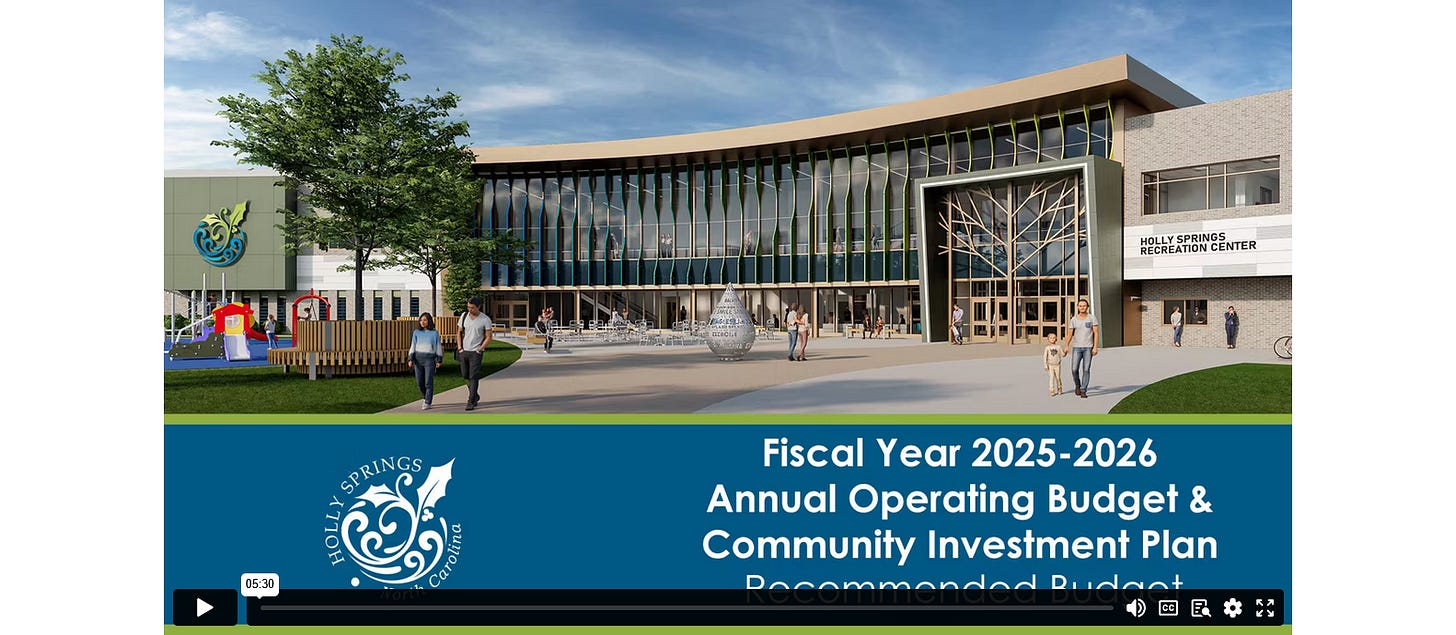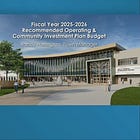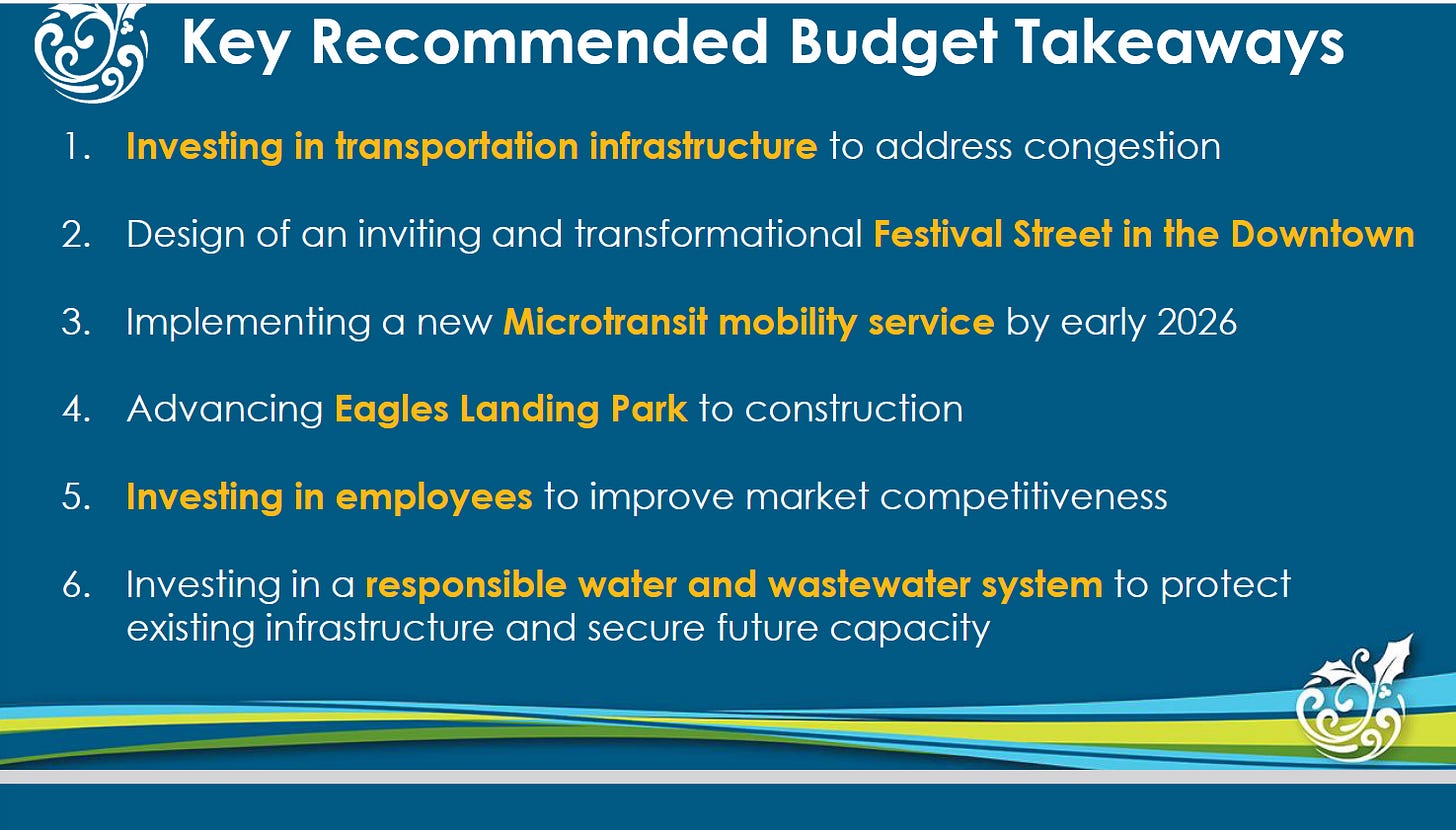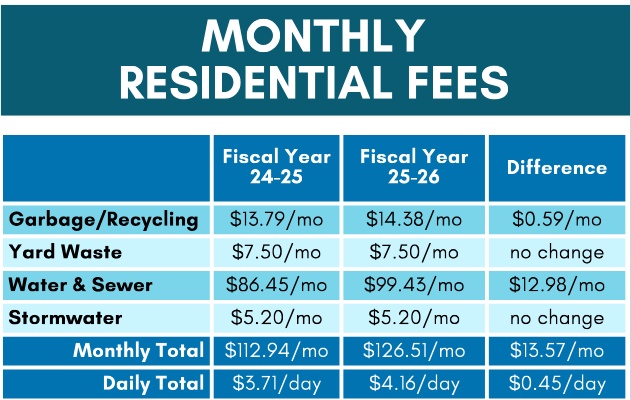No Property Tax Hike in Holly Springs’ Proposed 2025–26 Budget
Holly Springs Kicks Off Budget Talks with Focus on Growth and Services
“A Winning Strategy” was the theme of the first presentation of the fiscal year 2025-26 budget for Holly Springs. Town Manager Randy Harrington used the theme to highlight the good things happening within the town and shared four pillars of focus that could be improved with the upcoming budget. The pillars are: community safety, organizational excellence, growth management and economic vitality and a vibrant community.

Harrington explained that the town’s rapid growth, with a projected population of over 57,000 next year, is driving increased demand for resources.
Property Taxes & Budget Increase
The biggest news is that no increase in property taxes is being recommended. The current rate remains at 34.35 cents per $100 of assessed value.
The stability of property taxes comes as the overall general fund is looking at a $4 million increase. The money will be used to: keep pay competitive for town employees, purchase equipment for police and fire, create a Microtransit service within the town, and begin the design work of a festival street in the downtown area, among other items.
Increasing the water/sewer bill
The town is making a major investment to expand its wastewater treatment facility and invest in a new water treatment facility. This new facility will help the town have drinkable water for the foreseeable future. It is part of a partnership with the City of Sanford to expand its water treatment facility. It is going to cost Holly Springs about $45 million. Fuquay-Varina and Pittsboro are also paying a portion of the costs to expand the plant.
Each resident could see an additional $13.57 per month to help pay for this plant. According to Budget, Innovation, and Strategic Initiatives Director Corey Petersohn, this increase is approximately 15% and is expected to be the last significant increase for the foreseeable future.
Council Concerns
Councilman Tim Forrest shared his concerns with me about the budget. I’m sharing the verbatim transcript of his concerns and questions:
Key Concerns and Questions
1. Water/Sewer Utility Rate Increase – $12.98/month per household
With over $500 million in water/wastewater capital investments planned, I recognize the importance of securing future capacity. However, this rate hike, especially in this economic climate—will hit families hard.
What communication strategies are in place to clearly explain the rate increase to residents?
Can we explore phased implementation or targeted fee relief for low-to-moderate income households?
2. Debt Service Increases
The jump in General Fund debt service from $10.1M to $17.7M (a 74.6% increase) is substantial, pushing us close to the 15% cap.
Did our debt modeling predict this level of impact accurately?
Can we re-evaluate which capital projects are driving this and determine if any can be deferred or funded differently?
3. Personnel Cost Growth – $3.7M Increase (9.1%)
While I support investing in our workforce, the timing raises concerns. Rising national inflation, federal tariffs, and increased local layoffs suggest we should be cautious.
Is there a way to target pay increases more narrowly or phase them in?
Could some of these adjustments be deferred to relieve pressure on the budget?
4. Facility Maintenance & Janitorial Service Costs
With increases of $100K (maintenance), $50K (janitorial), and $20K (consumables), I want to ensure we’ve examined all options.
Have contracts been reviewed for competitiveness?
Have we considered prioritizing essential maintenance only or using internal staff more efficiently?
5. Communications/Web Staffing
The addition of a Website Specialist and CivicPlus ADA software may be warranted long-term, but with other financial pressures:
Have we looked at using contractors or part-time resources as a bridge until revenues stabilize?
Supported Investments
There are several components of this budget I believe are forward-thinking and aligned with resident priorities:
Eagles Landing Park and Festival Street Design promote vibrancy and community identity.
The Microtransit initiative offers promising solutions to congestion and equity gaps.
Our regional water/wastewater partnerships are vital for long-term sustainability.
Potential Offsets to Mitigate Utility Rate Hike
If implemented, these options could fully offset the $12.98/month utility increase for residents in FY26. I believe we owe it to the community to evaluate these pathways seriously before final adoption.
Next Steps
This presentation is the first step of the budget process.
Budget Public Hearing: May 20, 7pm in Town Hall (Submit Comments)
Budget Workshop: May 22, 6pm
Budget Adoption Consideration: June 3, 7pm in Town Hall










